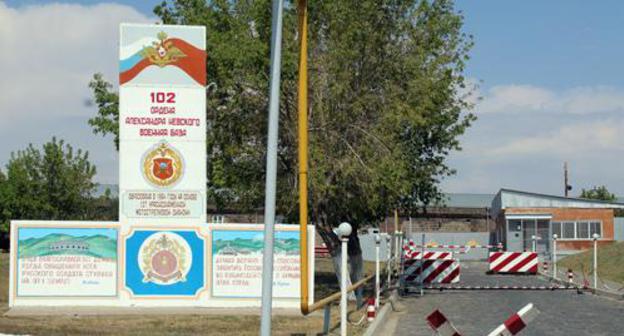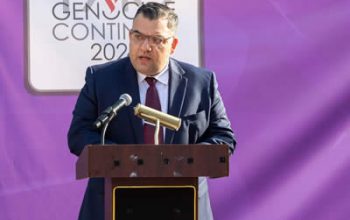The United States’ recent pledge to enhance Armenia’s security capabilities has sparked speculation about the potential withdrawal of Russian border guards from the South Caucasus nation, according to a senior Armenian official on Friday.
For decades, Russian forces have been stationed at Armenia’s borders with Turkey and Iran, a strategic role that has underscored Moscow’s influence in the region. While the Armenian government has not officially announced plans to request their departure, recent developments indicate a shift in border control dynamics. Last year, amid strained relations with Moscow, Yerevan moved to remove Russian forces from the Armenian-Iranian border crossing and Zvartnots International Airport.
The discourse around Russian border guards intensified following the January 14 signing of the charter for the newly formed U.S.-Armenia Strategic Partnership Commission. This agreement includes provisions for U.S. support in strengthening Armenia’s Border Guard Service and State Revenue Committee to combat the proliferation of weapons of mass destruction and enforce export controls.
During the signing ceremony in Washington, outgoing U.S. Secretary of State Antony Blinken announced that a U.S. customs and border patrol team would soon visit Armenia to advance this initiative.
Armenian Deputy Foreign Minister Paruyr Hovannisyan sought to clarify the nature of the U.S. assistance, stating that it aims to bolster Armenia’s border control effectiveness without targeting any specific country. “It has always been done by a third country. We should finally be able to control our border ourselves,” he noted.
Hovannisyan acknowledged that, in an ideal scenario, Armenia should independently manage its borders. The U.S. assistance, he explained, is focused on capacity building through shared expertise.
However, the prospect of Russian border guard withdrawal has prompted concerns from opposition figures. Tigran Abrahamyan, an opposition lawmaker, argued that Russia’s military presence has long acted as a deterrent against potential Turkish aggression and allowed Armenia to concentrate its limited resources on countering Azerbaijan.
The U.S.-Armenia strategic partnership charter was signed nearly a year after Prime Minister Nikol Pashinyan suspended Armenia’s participation in the Russian-led Collective Security Treaty Organization (CSTO), deepening the rift with Moscow. While Russia’s official reaction to the agreement was muted, senior officials issued warnings to Yerevan. Grigory Karasin, chairman of the foreign relations committee in Russia’s upper house of parliament, cautioned that the shift could have “unexpected and complex consequences for Armenia and its people.”
This evolving situation underscores the geopolitical recalibration in the region, as Armenia seeks to diversify its security partnerships while navigating the challenges of strained ties with Russia.




